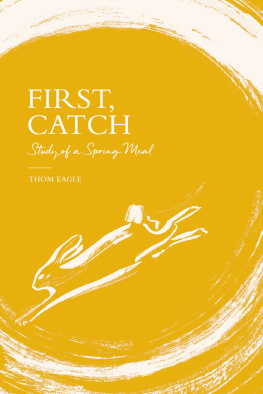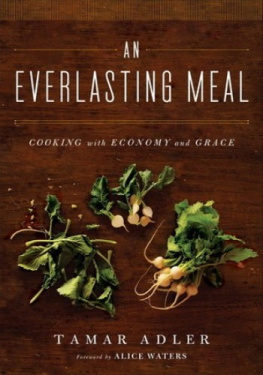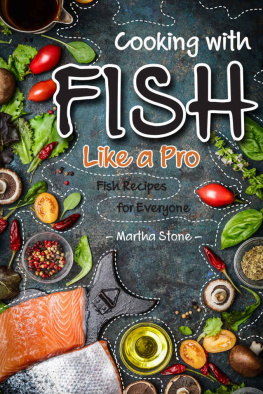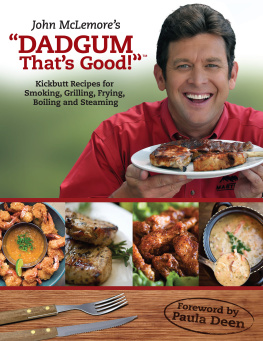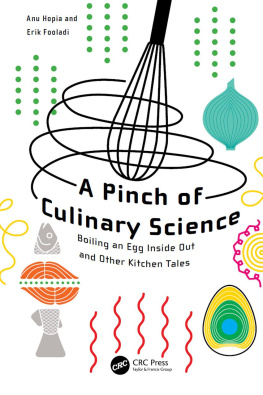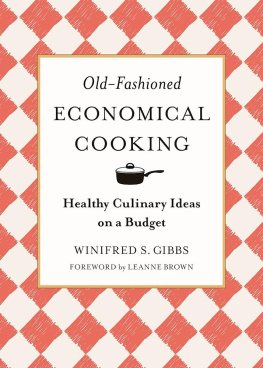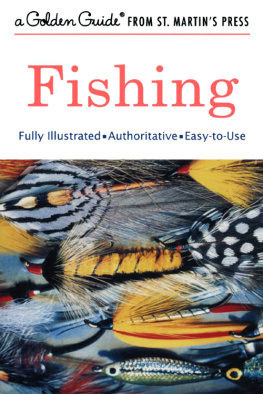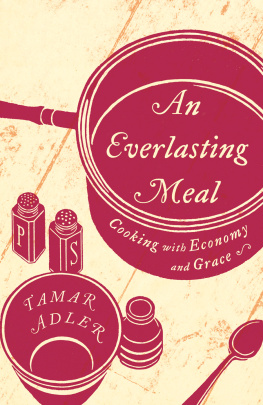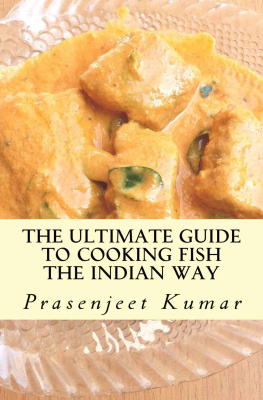Thom Eagle is a chef, writer, and Young British Foodies-nominated pickler. He is currently based at Little Duck in East London. He blogs at In Search of Lost Thyme. This is his first book.
Publishing Director Sarah Lavelle
Project Editor Susannah Otter
Designer Maeve Bargman
Illustrator Aurelia Lange
Production Director Vincent Smith
Production Controller Tom Moore
Published in 2018 by Quadrille, an imprint of Hardie Grant Publishing
Quadrille
5254 Southwark Street
London SE1 1UN
www.quadrille.com
All rights reserved. No part of this publication may be reproduced, stored in a retrieval system or transmitted in any form by any means, electronic, mechanical, photocopying, recording or otherwise, without the prior written permission of the publishers and copyright holders. The moral rights of the author have been asserted.
Cataloguing in Publication Data: a catalogue record for this book is available from the British Library.
Text Thomas Eagle 2018
Design Quadrille 2018
Illustrations Aurelia Lange
eISBN 9781787132818
Printed in China by C&C Offset Printing Co., Ltd.
To my parents; and to Lola, of course
CONTENTS
I spend a great deal of my time in the physical or imagined presence of food. I wouldnt say that I was a greedy child, but it is a fact that I once put so much chocolate in my mouth that I couldnt breathe. People like to point out that all of my childhood memories and indeed many of my adult ones, too are connected in some way with what I was eating at the time. A teacake saturated with butter in Great Aunt Dorothys kitchen; hot waffles on a rainy promenade in Belgium; Coca-Cola and vanilla ice-cream on a sunny Yorkshire lawn with a border collie. On my third birthday I sat in the garden, unwrapping toffees, my clumsy fingers dropping them one after another into the newly dug sandpit. Although I dont think my palate or nose particularly refined, they are certainly hard-wired to my memory; my spots of time are almost all edible.
I suppose its easy, looking back, to pick any narrative you like from the hurried confusion of events that constitute a life, to find inspirations, hints and foreshadowings. When I finished university, sick of writing and of words and wanting most of all to work with my hands, I turned towards the professional kitchen. My mother likes to remind me, as if the progression had been inexorable, how at the age of eight I expressed a wish to cook an entire roast chicken dinner and was duly guided through her carefully planned timetable for doing so in our little galley kitchen: when to parboil, when to pre-heat, when to remove and to keep warm and to strain was all noted down in a tight schedule. I had, as I cooked, the perhaps not entirely unjustified sense that a single misstep could bring the delicate waltz to a grinding halt; behind it, though, I heard the hiss of frozen peas meeting boiling water, the forceful shuffle of half-cooked potatoes, and all the other music of the kitchen which now fills my ears.
I had made cakes and jam tarts and so on before this, but that precocious chicken gave me the sense that, unlike baking, with its careful but apparently arbitrary proportions of everyday ingredients transformed in the dark, their rise or fall determined by the whim of the oven, cooking was not simply magic; if you paid attention it seemed you could make food do what you wanted it to do. It also, for that matter, showed me that not even the most meticulous of recipes is infallible, as the chicken came out rather pinker than it should, and so dinner was late in the end. Still, when I cooked a Christmas dinner for the first time last year in an equally restricted space, I found myself working to a similar timetable the difference being, after years of cooking professionally, that the process was entirely in my head and in the rhythm of my arms. Aside from the paperwork, being a chef is mainly about juggling, with the food itself often something that emerges almost incidentally from a complicated interplay of pans, plates and people. It is very different festive dinners aside from cooking peacefully at home, where each thread of a meal can be joined easily to the next, or set aside to be picked up again at your leisure.

Even food I have never seen possesses me. I have a stronger mental picture of the picnic in The Wind in the Willows than of many of the real events in my own life. Whenever I travel, my appetite roams ahead, fuelled by ranks of essays and stories and memoirs, and sometimes by recipes. I seek out and devour food writing in all of its forms from lengthy and flowery introductions, through drily academic histories to the tersely scribbled instructions you sometimes find tucked into old cookbooks. But when I think of all the recipes I have read, professionally or otherwise, stacked up as it were in one gigantic pile on an overflowing workbench, the main sensation I feel is frustration. All those neat little lists take this, take that as if cooking begins when you pick up an onion, or finishes as the dish goes on to the plate. So much more surrounds a meal and its making than just the bare facts of its enumerated parts. At the top of the page it just says two onions, chopped, but someone had to grow them, to pick them, to store and transport and buy them, all before you take them from the vegetable rack or the fridge, halve them from root to tuft, and peel off the outermost layers of brown parchment; before you cut first in a wedging arch and then across, remembering the cook who taught you to let the onion fall into its own layers rather than force it apart into rigid dice, and wondering perhaps in passing why you are doing so, when the other recipe said sliced, when the other recipe contained no onion at all. The Koreans have a description for the specific qualities of a persons cooking which translates as something like the taste of your hands; they know, I suppose, that knowledge rests in muscle and bone, which is never written down.
I have nothing against recipes. In fact I use them all the time, and am suspicious of cooks who claim never to do so. Recipes are a record of social and emotional histories as well as a means of travelling to almost any country or place you care to name, including, of course, the past. Anyone who tries to separate food from all of these things cooks for reasons I do not understand; it can only, I think, be vanity, trading the deep satisfaction of time for immediate gratification.
Yet, while useful to cook from, there is so much that recipes miss. The satisfaction of peeling a ripe, thick-skinned tomato, for instance, or unzipping a pod of broad beans; the smell of rosemary hitting gently warming olive oil; the yielding of a wing of skate to a gently pressing finger; the sight of a simply laid table in spring, awaiting the arrival of both people and lunch. None of this can be captured in a written recipe. These are sensations we feel behind the lines of our cookbooks, but the rigid lists that now fill them leave little room in which to do so, let alone to think about what we will do with this dish once we have cooked it. Serve immediately, these instructions end, but who to? Even a thousand recipes dont make a meal.

